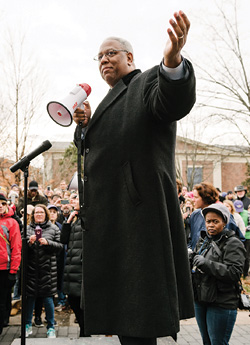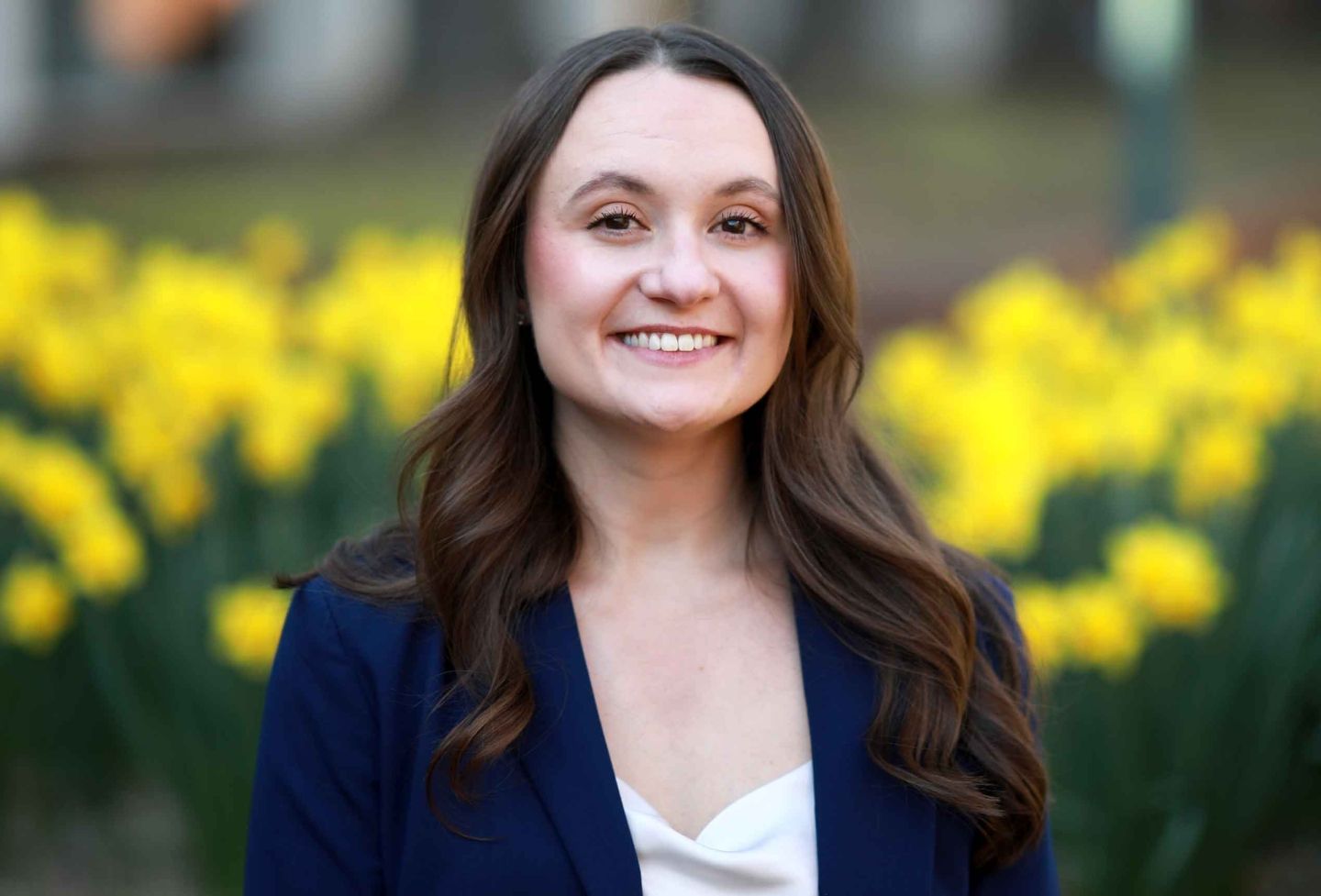Rep. A. Donald McEachin ’86, newly elected to Congress from Virginia’s 4th Congressional District, has been in the majority and he has been in the minority — and he will freely tell you that being in the majority is better.
But McEachin and his fellow Democrats will be in the minority as he begins his first term in the House of Representatives, which means that the opportunity to introduce legislation or even amendments with a reasonable chance of enactment is small. Most of what McEachin and his caucus mates will be doing for at least the next two years is playing defense.
“You’re still pinching yourself, the fact that you’re here at all,” he said of his first weeks in Washington. “But there’s work to be done.”
He has a long list of things he would like to address, which includes increasing access to rural broadband internet service and improving the quality of life for those in the military. Both are important in McEachin’s district, which includes the city of Richmond and stretches down to the North Carolina line, including many constituents who work at the Norfolk naval base. McEachin serves on the Armed Services Committee, including its subcommittees on readiness and sea power, as well as the Natural Resources Committee.

“I hope to do things on a bipartisan basis,” he said, “but when we have to stand up to the president and tell him he’s wrong, I’m able to do that, too.”
McEachin was first elected to the Virginia House of Delegates in 1995 and served three terms. After winning the Democratic nomination for attorney general but losing the general election, he returned to the House of Delegates in 2005, prevailing in his primary by just 44 votes. He won the first of two terms in the Virginia Senate in 2007 before deciding to run for Congress. During his time in office, he championed legislation to close substandard landfills and created the Offshore Wind Development Authority.
McEachin acknowledged that he owes his congressional district to the courts. He and fellow Democrats blasted a redistricting plan approved by the Republican-controlled legislature as “plantation politics” because it attempted to gerrymander African-American voters into a single black-majority district. A federal court agreed, tossing out the Republicans’ map and imposing a new one. McEachin noted with pride that Virginia currently has two African-Americans in its congressional delegation, neither one of whom represents a black majority district.
McEachin spent the first several years of his life in Europe as an Army brat (his father, a Korean War veteran, served in Germany and Italy working as a field nuclear weapons specialist). The family moved to Richmond when McEachin was in third grade, and he attended high school at St. Christopher’s School. He graduated from American University in 1983 before starting law school, which he called “the best three years of my life.” The real prize, though, was meeting his wife, Colette McEachin ’85, who is now a deputy commonwealth’s attorney in Richmond.
In 2005, McEachin faced a crossroads.
Out of elective office after losing his race for attorney general, he was troubled, he said, when his three children began asking pointed spiritual questions that he found difficult to answer.
“I wanted to be able to have kitchen-table conversations,” he said. While still practicing law, McEachin decided to enter seminary, earning his master’s of divinity degree from Virginia Union University in 2008. He currently attends Ebenezer Baptist Church in Beaverdam, Virginia, just north of Ashland, sometimes filling in as a guest preacher.
The new congressman said he is determined to stay in touch with his constituents by taking full advantage of the congressional franking privilege to send newsletters and legislative updates. When the House is in recess, he will host town halls and wants to explore online events as well, he said. Mostly, though, his strategy is to be visible in his district: “Go visit folks where they are and listen to their concerns.”
Long a reliably red state, Virginia turned purple in the mid-2000s and now seems to lean toward blue: Democrats currently hold the governorship and both U.S. Senate seats. Does the Old Dominion provide a lesson for the national party? McEachin is confident that it does.
“The message is that Virginia’s demographics are destiny,” he said. “Our demography has changed and our party has embraced those demographics, where the Republicans haven’t.
“We’re going to be all right.”
More VITA Stories
Founded in 1819, the University of Virginia School of Law is the second-oldest continuously operating law school in the nation. Consistently ranked among the top law schools, Virginia is a world-renowned training ground for distinguished lawyers and public servants, instilling in them a commitment to leadership, integrity and community service.



